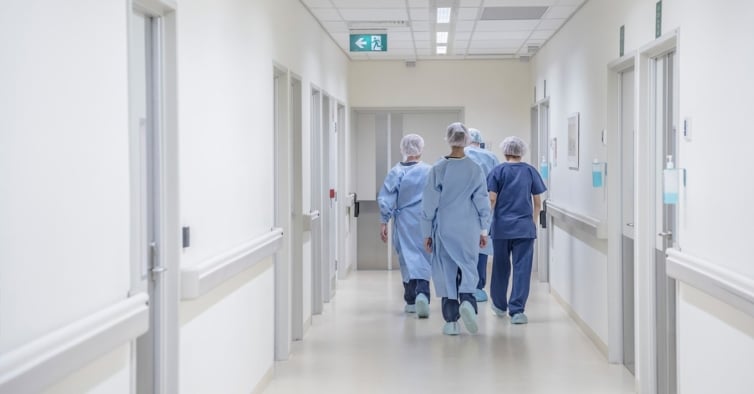Hospital blames “extreme shortage of doctors”
In a shameful episode that suggests Portugal’s national health patients may not be in safe hands, hospital Amadora-Sintra has been acknowledged as failing to communicate a cancer diagnosis to a senior patient, on whom a biopsy had been performed, “for more than two years”.
It was only due to pressure from the family to find out what the results of the biopsy were that the terrible lapse of follow-up care was flagged.
The granddaughter of the patient has lodged a formal complaint and is insisting that the hospital be responsible “‘for everything that may happen from now on, namely all the costs, charges and whatever is necessary” to keep her grandmother “stable, healthy and in complete comfort”, writes Lusa.
But what stands out in this dismal story is the ‘response’ of the hospital after health regulatory entity ERS took up on the granddaughter’s complaint.
“In response to the complaint received by ERS, the hospital states that the Gynaecology Service’s Synology Unit is in a situation of extreme shortage of doctors due to the departure of several professionals to other health institutions without being properly replaced”, writes Lusa.
“It has been very difficult to respond to requests in time, despite the efforts of the remaining doctors. The hospital has made every effort to replenish the medical staff. (…)”, the reply states, adding that an appointment was made for 27 March 2023, which the patient attended.
It was in February 2023 that the granddaughter’s quest for a biopsy result led to the family hearing the worst from their family GP, initiating their complaints process.
In an ideal world, the hospital should have confirmed the diagnosis immediately. “We all know that these types of illnesses, when treated in good time, can be overcome”, wrote the granddaughter in her complaint, to which ERS has conceded that, even with its lack of capacity, and inability to schedule the provision of healthcare, Amadora-Sintra was required to “guarantee an alternative service of comparable quality and within the appropriate timeframe, by means of a referral to another SNS entity or to an entity in the contracted sector” – which it patently did not do, “in violation of the Charter of Rights of Access to Health Care by SNS Users”.
Instead of guaranteeing care, “no communication was made to the patient about the results of the MCDTs (tests), nor was a new gynaecology appointment scheduled to assess the patient’s clinical situation and define a care plan”.
The assessment appointment to define a care plan was held on March 27, 2023, more than two years after the first appointment, “and only took place because of the complaint that gave rise to these proceedings”, ERS adds.
Where does this leave the patient? Where does it leave other patients, equally waiting for test results that appear to be taking ‘an age’ to come through?
Lusa concludes that ERS “issued an instruction to the ULS (Local health Unit) of Amadora-Sintra to ensure that the legitimate rights and interests of users are respected at all times, namely ‘access to the most appropriate and technically correct care, which must be provided humanely, with respect for the user, promptly and within a clinically acceptable period of time”.
It is a conclusion that equates to decreeing that stables doors must be kept shut to ensure horses do not bolt. It doesn’t answer the situation/ provide redress or even give assurances for the patient’s future.
Tomorrow’s tabloid papers may have more information on the ‘grandmother’ involved – or this may just stand as a deeply-disturbing cautionary tale.
Source material: LUSA



















